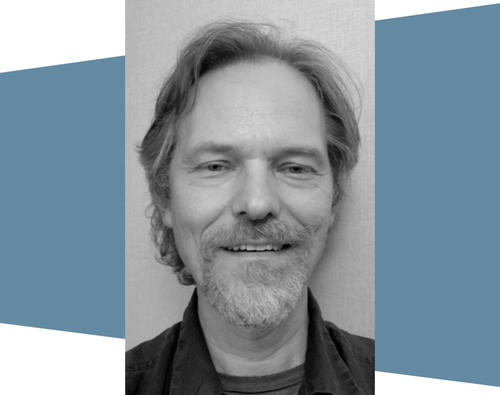Adrian Ivakhiv
Adrian Ivakhiv ist Professor of Environmental Thought and Culture an der University of Vermont. Zuvor hatte er dort die Steven Rubenstein Professur für Environment and Natural Resources inne. Ivakhiv leitet das EcoCultureLab, das Kooperationen zwischen ökologisch orientierten Künstler*innen, Natur- und Geisteswissenschaftler*innen und der breiteren Öffentlichkeit organisiert. Seine Forschungsschwerpunkte sind Kultur- und Medientheorie, Ecocinema, Ecophilosophy, Filmphilosophie und Anthropozänforschung.
Er publizierte unter anderem die Monografien Shadowing the Anthropocene: Eco-Realism for Turbulent Times (2018) und Ecologies of the Moving Image: Cinema, Affect, Nature (2013). Cinepoetics empfängt Ivakhiv im Rahmen eines Fulbright-Stipendiums ab März 2023 als Gastinstitution.
Three Quick Questions:
In a few words, can you tell us about your current research interest?
My research is currently focused at the intersection of digital media ecologies (in the multiple senses of the latter term) and the Anthropocene predicament, with all the political complexities that attend it (political contestation, global inequalities of risk and vulnerability, fossil fuel driven wars, etc.). I’m interested in how digital media systems inform and misinform, how they affect and reshape habits of attention, how meanings (political, cultural, and ecological) are contested across and within media platforms, and how media images are becoming both less reliable (or viewers are becoming more skeptical of them) and more immersively realistic (especially through virtual and hybrid formats). I follow these questions into the cultural contestation over climate change, pandemic politics, and fossil-fueled wars including that being fought today in Ukraine (where I have a longstanding research interest).
How do you relate the term poiesis to your work?
Poiesis, for me, suggests the creative labor of 'bringing forth a world,' as biologist of cognition Francesco Varela described processes of autopoiesis. This labor is both prosaic and poetic (the close cognate of poietic); that is, it is both semiotically mundane—consisting of acts of perception rooted in bodily habit and a kind of predictive neural computation—and it is open-endedly creative. It is also always relational, or 'sympoietic' in the words of Donna Haraway, and never only self-sufficiently individual. Because my work focuses on the interpretive and imaginative domains of human thought and practice, poiesis is central to it, even if I don’t use the term often.
Which film or other audiovisual format has resonated with you lately and why?
As I’ve watched others (and myself) drift away from viewing whole movies, especially in theatres (or reading full-length books, attending concerts, etc.), and toward more 'distractive' and 'disorganized' forms of media consumption (surfing online, following subjects across multiple sources, favoring shorter works or even fragments of video works rather than complete films, etc.), I’ve become intrigued with the way in which cinematic viewing practices that used to be considered avant-garde and elite—specifically, the kinds of juxtapositions of sound, image, and text familiar from the films of Godard, Marker, Farocki, et al.—are becoming rather more common in the experience of media users. One artistic format I’ve found particularly compelling is the kind of layered, multi-channel audio-visuality—invitingly immersive but non-linear and non-didactic forms of 'open' storytelling—practiced by artists like John Akomfrah, the Otolith Group, Heather Phillipson, Armin Linke, and others. The resonance between these is with the possibilities of finding insight in happenstance moments of cognitive and affective convergence, moments that arise from unprogrammed juxtapositions.
